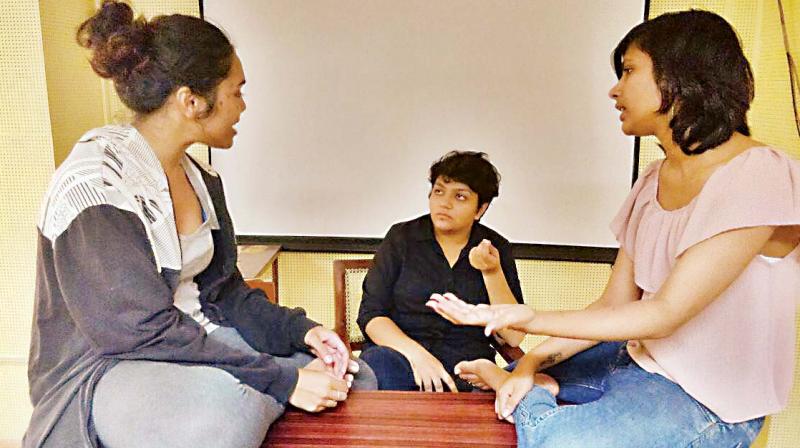The chat room: Code Red Let's talk about menstrual health!
Extremities should be catered to and trust plays a major role.

Mumbai-based startup Culture Machine’s decision to offer female employees paid leave during their periods has sparked off a nationwide discussion about menstrual health and the workplace. Students Trisha Appanna, Teresa Braggs and Varshita Ramesh talk to Joyeeta Chakravorty about how the move has opened a long-pending discussion and if it can find implementation in educational institutions too.
Women-friendly workplaces have always enjoyed centre stage in the feminist debate, although the socio-cultural taboos that exist around the female body have left these conversations fundamentally stunted. Social media, it turned out, would bring these barriers down, when Culture Machine, a Mumbai-based digital media company circulated a Whatsapp video that talked about their decision to introduce paid menstrual leave. Needless to say, the video went viral, with many other Indian companies rushing to follow suit. The topic is also being hotly debated across social media.
"If women are experiencing pain, then they should be given a day off. However, this narrative should also encourage conversations on women’s health in general, which somehow never enters the limelight,” said 20-year-old Teresa Braggs. “ By being allowed a day off, we are sensitising the audience towards something that has largely been brushed under the carpet,” said Varshita Ramesh, adding, “Research has been understated because of the society we live in. This move, whether it is implemented across the board or not, encourages conversation.”
Chennai-based Magzter was the next to embrace the policy, offering its women employees paid menstrual leave each month. “I don’t know whether it would be practicals as many cycles sync, but it is a brilliant idea in theory,” pointed out Trisha Appanna. “As much as I hate to say this, we live amongst misogynistic men and women aren’t too different as they tend to shrug off the pain that other women feel.”
The obstacles, they believe, boil down to a lack of communication. “The Indian education system needs a revamp, although boys are becoming more sensitive,” Trisha remarked. “If boys can talk about alcohol and porn, they can talk about periods as well. Why is that in schools, girls are taught about their periods separately while boys are given sex education?”
Perhaps this could shed some light on menstrual health, which cause women a great deal of pain, borne largely in silence. Polycystic Ovary Syndrome, for instance, afflicts some one in five women, with intense symptoms. “Cramps are exceedingly painful and there’s nausea too,” said Teresa. “I have PCOS and there are many women out there like myself. Perhaps it is not feasible for an institution that accommodates a large number of girls going on sick leave every month, but it does shed light on what we go through. Large scale discussions around the topic are still rare in the profit-making environment.”
Extremities should be catered to and trust plays a major role. “I think it is logical that if the pain is very severe, students should be able to take the day off and receive attendance by emailing our professors. But yes, trust is crucial,” said Varshita. They do believe that with some careful planning, the concept of period leave would work within an academic structure, although its success in the corporate set up is still up in the air. Still, it’s a step in the right direction.

